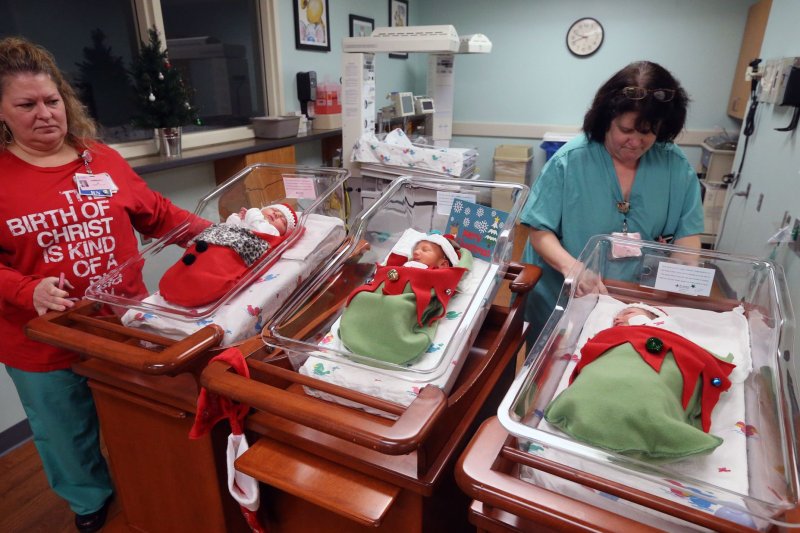
Researchers said that there's still plenty that's unknown about why some women birth twins, but available data indicates that luck plays a larger role than previously believed. File Photo by Bill Greenblatt/UPI | License Photo
May 24 (UPI) -- According to research published on Tuesday, mothers who give birth to twins are more lucky than they are biologically unique -- a conclusion that goes against previous research done on the issue.
The research was done by the Leibniz Institute for Zoo and Wildlife Research.
An international team of scientists said they studied 100,000 births from the preindustrial period in Europe and concluded that there was nothing biologically unique about them that contributed to their giving birth to twins.
That conclusion went against previous research that said mothers who birth twins tend to be more fertile.
"Previous studies are problematic because they cannot tell us whether mothers with twins give birth more often because they are especially fertile, or because giving birth more often increases the chance that one of these births is to twins," researcher Alexandre Courtiol said in a statement.
"If a mother gives birth more often, it is more likely that one of these births is to twins -- just like you are more likely to win if you buy more lottery tickets, or to be in a car accident if you drive a lot," author Ian Rickard of Durham University added.
Scientists noted that twin births occur in 1-3% of all births and are found in all populations, regardless of whether they're associated with a higher risk than single pregnancies of natal and postnatal health issues for both the mother and children.
Researchers said that there's still plenty that's unknown about why some women birth twins, but available data indicates that luck plays a larger role than previously believed.
With so many factors involved, they noted, it's difficult to determine with much certainty whether mothers who gave birth to twins are any more fertile than those who don't.
"Our study suggests that twinning has not been eliminated by natural selection for two reasons," Courtiol added.
First, twinning is a consequence of double ovulation, which compensates for reproductive ageing and benefits all but the youngest of mothers. Second, when the risk of early mortality of twins is not too high, twinning is associated with larger family sizes although women with twins give birth less often. This is because twin births bring two offspring rather than one."
Tuesday's study was published in the scientific journal Nature Communications.
No comments:
Post a Comment